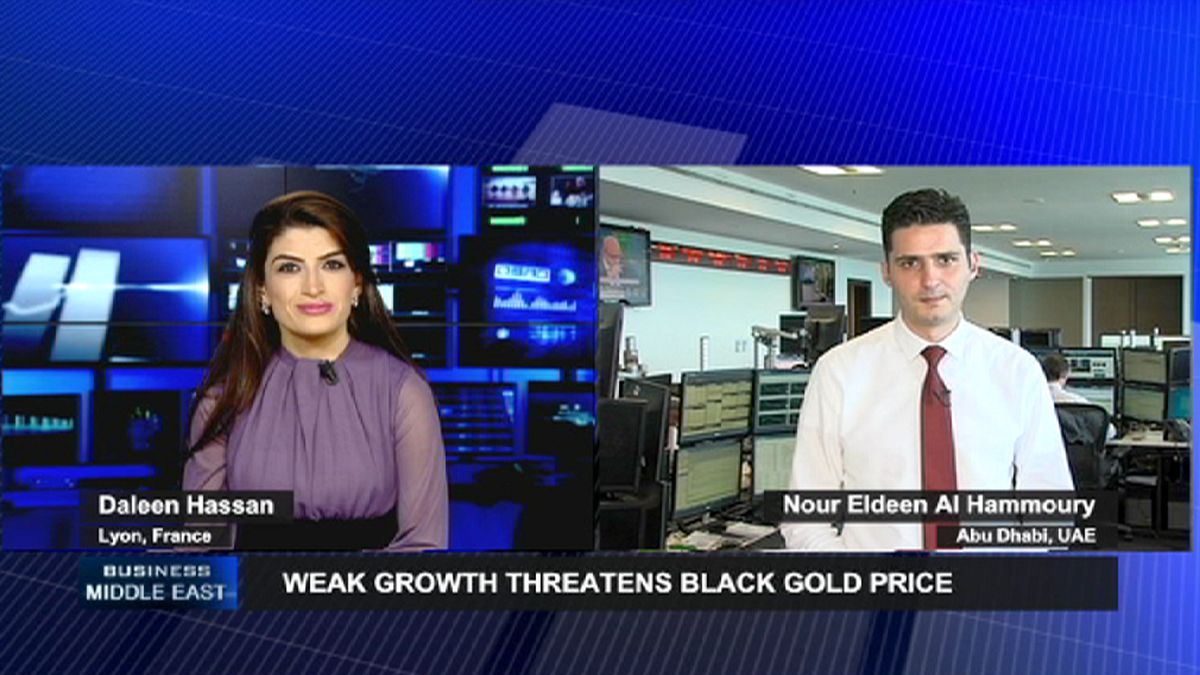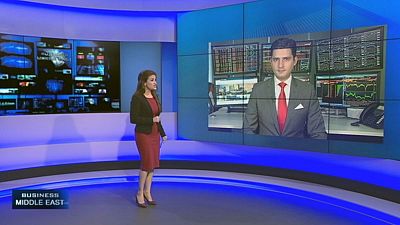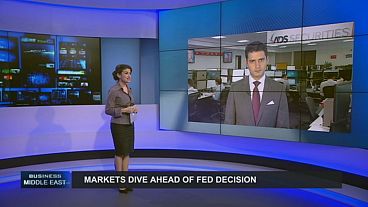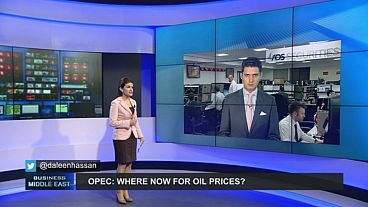Business Middle East this week take a closer look at the International Monetary Fund’s latest predictions. A pessimistic IMF has lowered its forecast for global economic growth for this year and next, especially for the biggest eurozone economies.
It did not cut the forecasts for most of the nations around the Gulf, however it did raise concerns over falling oil prices.
Normally political crises in regions like the Middle East and North Africa would push up the cost of crude, but now the opposite is happening as weak growth means reduced demand and there is more oil available than needed.
The recovery from the ‘Great Recession’ remains feeble with many so-called “downside risks”, the IMF warns in its latest 'World Economic Outlook' report.
The world financial body has cut its forecast for global growth to 3.3 percent this year and 3.8 percent next year.
“It’s clear that the recovery is weak and uneven, and if you look to the advanced economies you have the US which is doing well, and you have the eurozone and Japan which are not doing so well,” said IMF Chief Economist, Olivier Blanchard
The three biggest eurozone economies – Germany, France and Italy – were downgraded as the IMF’s experts stressed it is essential that richer countries maintain low interest rates to stimulate borrowing and so drive growth.
It is a mixed picture in the Middle East, the forecasts for Qatar, Saudi Arabia and the United Arab Emirates were increased, but Kuwait’s was lowered.
Among the non-Gulf Cooperation Council countries, oil exporters Iran and Iraq are seen to have lower growth prospects because of sanctions against Tehran and fighting in Iraq. Falling oil prices will hit their budgets.
The cost of crude is dropping due to weaker demand and increased non-OPEC production, particularly shale oil from the United States.
The Gulf region’s economy remains stable, but analysts say there are negative influences from the slowing global economy.
For a deeper insight into the concerns raised in the report Euronews’ Daleen Hassan spoke to Nour Eldeen Al-Hammoury, Chief Market Strategist at EDS Securities:
Daleen Hassan, euronews: “The IMF has cut its growth forecast for the three biggest eurozone economies. How deep are the bloc’s problems and what can it do to counter that weak recovery?”
Nour Eldeen Al-Hammoury: “It’s been almost seven years since the financial crisis. The ECB has introduced many stimulus programmes such as QE (quantitative easing), LTRO (Long Term Financing Operation), TLTRO (Targeted Long Term Financing Operation), and now the ABS Programme (Asset Backed Securities) buying programme.
“However, the growth rates are far from eurozone targets and they haven’t achieved any growth target in the past seven years. The main problem in Europe is that they are doing two approaches at the same time, which is austerity and borrowing to support growth.
“The only solution that we believe in is that the eurozone needs to concentrate on one approach, whether to do austerity, which could lead the economy back in to recession, but on the long term it would be positive. The other solution is to continue with borrowing to support growth. This is positive only in the short term but very dangerous on the long term as debt levels are already at record high.”
Daleen Hassan, euronews: “Oil prices seem set to drop further because of oversupply, what can producer countries in the Middle East do to stabilise prices?”
Nour Eldeen Al-Hammoury: “At the moment we haven’t reached panic stations. Saudi Arabia has increased its production in September by another 100,000 barrels per day, which is likely to keep oil prices under pressure. However, this decision could be a way to stabilise their revenues, by increasing their share in selling crude oil.
“However, the Gulf might be OK with prices above $75-$65 for Brent crude there will be no deficits yet. However, a break below those levels may lead the region or OPEC specifically to support prices by cutting production as the market is already over supplied amid the global economic slow down.”
For more business news you can also visit the Euronews Business YouTube channel.



